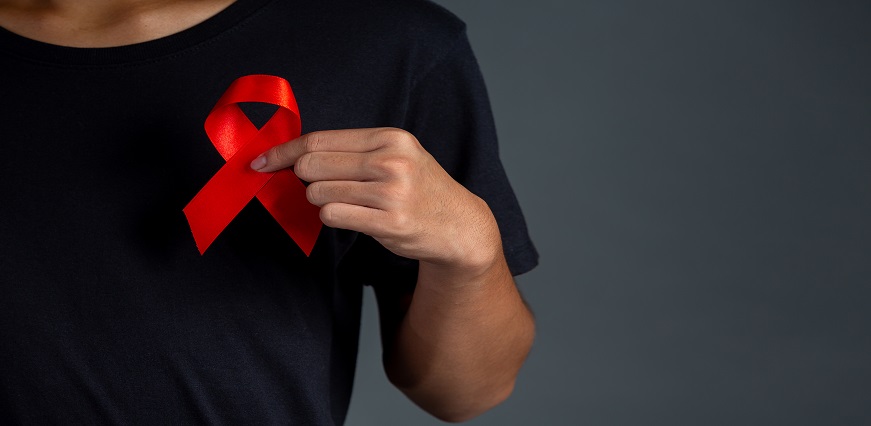





No lab centers are available in this city

HIV infection is a serious and lifelong condition that affects millions of people worldwide. Although it can be managed with proper treatment, early detection is crucial for the best possible outcome. One of the first steps to identifying HIV infection is recognizing its symptoms. In this blog post, we will discuss common HIV symptoms in both men and women, as well as how to prevent complications and when to seek medical care. Whether you are concerned about your own health or simply want to learn more about this important topic, read on to discover everything you need to know about HIV symptoms in men and women!
HIV stands for Human Immunodeficiency Virus, which attacks the immune system and weakens its ability to fight off infection. The virus is transmitted through contact with infected bodily fluids such as blood, semen, vaginal secretions or breast milk.
HIV is a virus that attacks the immune system, and it can take years for symptoms to develop. In some cases, people may not experience any symptoms at all.
After being infected with HIV, some people may develop flu-like symptoms within 2-4 weeks. This includes fever, headache and muscle or joint pain. These early symptoms are known as acute retroviral syndrome (ARS). However, not everyone who has been infected will experience ARS.
Even if no symptoms appear initially, HIV continues to progress over time. As the virus replicates in the body and attacks white blood cells called CD4 cells, this weakens the immune system and makes it harder for the body to fight off infections.
HIV, or human immunodeficiency virus, progresses in different stages.
If left untreated, HIV can progress to acquired immunodeficiency syndrome (AIDS). AIDS occurs when your immune system is severely damaged by the virus and you become vulnerable to opportunistic infections and cancers.
Some of the male- specific symptoms in case of contracting HIV include:
HIV is known for causing infections that can be difficult to treat in men. For example oral thrush (a fungal infection) or shingles (a viral infection) are two common problems that often occur when someone has an advanced stage of HIV.
There are certainly common symptoms that women experience:
HIV is a virus that attacks the immune system, making it harder for your body to fight off infections and diseases. HIV can be transmitted through contact with infected bodily fluids, such as blood, semen, vaginal secretions or breast milk.
The most common ways of getting HIV are by having unprotected sex with an infected person or sharing needles or other injection equipment with someone who has HIV. It's also possible to get HIV from mother-to-child during pregnancy, childbirth or breastfeeding.
While anyone can develop HIV regardless of their race, gender or sexuality, certain groups have a higher risk of acquiring the infection. These include men who have sex with men (MSM), people who inject drugs and individuals living in areas where there is a high prevalence of HIV.
Preventing HIV is possible and there are several ways to do so. The most effective strategy is to practice safe sex, which involves using a condom consistently and correctly during vaginal, anal or oral sex with an infected partner. It's also important to have open communication with sexual partners about their HIV status.
Another way to prevent getting HIV is by avoiding sharing needles or other drug injection equipment. If you use drugs, consider seeking support from healthcare professionals for substance abuse treatment.
Getting tested for HIV regularly can also help in prevention efforts. Knowing your status allows you to take necessary steps towards protecting yourself and others around you. It's recommended that those who engage in high-risk behaviors get tested at least once a year.
Preventing HIV requires taking proactive measures such as practicing safe sex, avoiding sharing needles or other drug injection equipment, regular testing and considering PrEP medication if appropriate. By taking these precautions seriously, individuals can protect themselves and their loved ones from this serious virus.
HIV symptoms can vary greatly from person to person and depending on the stage of the infection. It's important to note that not everyone infected with HIV will experience symptoms immediately or at all.
Early detection is crucial in managing the virus and preventing progression to AIDS. If you suspect you may have been exposed to HIV, it's important to get tested as soon as possible.
Prevention methods such as using condoms during sexual activity, avoiding sharing needles or other drug equipment, and getting regular testing for sexually transmitted infections can greatly reduce your risk of contracting HIV.
 Allergy Test
Allergy Test
 Anemia Test
Anemia Test
 Auto immune
Auto immune
 Blood disorder
Blood disorder
 Bone and Joint
Bone and Joint
 Cancer Test
Cancer Test
 Cardiology Test
Cardiology Test
 Covid Recovery
Covid Recovery
 Dengue Test
Dengue Test
 Depression
Depression
 Diabetes Test
Diabetes Test
 Fatigue
Fatigue
 Fever Test
Fever Test
 Full body
Full body
 Gastro Test
Gastro Test
 Gastrointestinal
Gastrointestinal
 Gynaecology Test
Gynaecology Test
 Heart Test
Heart Test
 HIV Test
HIV Test
 Hormone Test
Hormone Test
 Hypertension
Hypertension
 Immunity Test
Immunity Test
 Infectious Disease
Infectious Disease
 Infertility Test
Infertility Test
 Influenza Test
Influenza Test
 Iron Test
Iron Test
 Kidney Test
Kidney Test
 Liver Test
Liver Test
 Lung Test
Lung Test
 Nephrology
Nephrology
 Obesity
Obesity
 Orthopedics Test
Orthopedics Test
 Physician
Physician
 Pollution Health Checkup
Pollution Health Checkup
 Pregnancy Test
Pregnancy Test
 Prostate Test
Prostate Test
 Senior Citizen Test
Senior Citizen Test
 STD Test
STD Test
 Thyroid Test
Thyroid Test
 Tuberculosis Test
Tuberculosis Test
 Vitamin Test
Vitamin Test
 Women Health Test
Women Health Test
Sign up takes less than 60 secs and gives you access to your offers, orders and lab tests.
Looks like you are not registered with us. Please Sign up to proceed
OTP will be sent to this number by SMS
We have successfully received your details. One of the agents will call you back soon.
 To reach our help desk call 9213188888
To reach our help desk call 9213188888
No Lab Centers are available in this city
Looks like you are not registered with us. Please Sign up to proceed
OTP will be sent to this number by SMS
Not Registered Yet? Signup now.Looks like you are not registered with us. Please Sign up to proceed





 7982100200
7982100200.png)